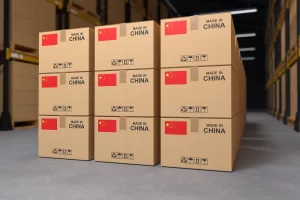China has seen unprecedented success in the business world over the years. With this growth, always comes changes within strategies, consumerism trends and technology. In order to assess how CEOs should tackle these changes, we need to look into what these changing strategies and new business trends are. Artificial intelligence in China has gained more and more traction every year and it is an evident debate that in the future there may be an automated version of all aspects of business. Moreover, there is a democratisation of people and jobs as the traditional outlook onto the China market and the management of companies has shifted. Finally, as the new generation come more into the spotlight, there have been some changes in the consumerism patterns. Headhunting companies need to find the right CEOs to tackle these changes.
As seen in previous articles, technology in China has been used for personal use but also in business. According to the China Development Research Foundation, automation has replaced up to 40 percent of workers in some companies. Headhunting companies themselves have been replaced by websites as well as so many other businesses; platforms such as [ insert china’s linkedin] create greater connections on a virtual platform not only human capital created face to face. Headhunting companies need to find CEOs who are able to manipulate and use AI to the its maximum potential whilst keeping a human side in order to lead a team in an efficient way without making employees feel like robots. CEOs should approach their organizations in a new way. When considering the business today in terms of functions and established infrastructure—with technology, data, and artificial intelligence executives need to rethink the structure of their workforce. With individuals retiring, automation can replace many of these functions. You can consider hiring additional part-time employees and freelancers, as well as tapping into new talent, but don’t commit them to a long-term position.
The freelance aspect of business has also changed over the years. Talent has changed but there has been a rising number of companies such as startups. Headhunting companies deal with multinational companies with offices in China but also small start up companies within niche fields that are seeing great success. This untraditional structure is a challenge for CEOs that are sourced for one of these smaller successful companies who need to change their vision and management strategy to be adapted to this “new version” of companies. Headhunting companies need to also help companies such as these assess if their management is well fitted for this change and find a replacement if there is a need for one.
Another long-term trend in China is customers shifting away from today’s massive consumption—and, in some respects, overconsumption with “Made in China” being a global phenomenon to a more simple, much more ecologically friendly, and much more basic and aware way of consuming. A 2021 report on environmental sustainability by Deloitte said that 82% of executives polled said their business was concerned about climate change and 25% of them planned to step up environmental sustainability initiatives despite any economic downturn brought by the Covid-19 pandemic. This is also something Headhunting companies in China need to think about going forward, mass production and profit concentrated businesses do not work as well as they used to. There is a rise in the “pushing back” from consumers who want to see a more environmentally friendly and generally ethical vision of business.










